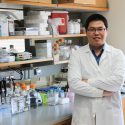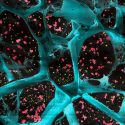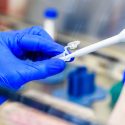Health care on the home front: UW grads remain in the state to keep Wisconsin well
When it comes to helping Wisconsin residents and the state’s economy, you Can’t Stop a Badger. This March, see how UW–Madison scientists conduct cutting-edge research that delivers tangible benefits for Wisconsinites and the world. Follow along using #CantStopABadger on social media. Your support can help us continue this work.
Where there’s a bandage, there’s a Badger.
Thousands of University of Wisconsin–Madison graduates diagnose illnesses, treat patients and fill prescriptions in Wisconsin hospitals, clinics and pharmacies. In fact, doctors, nurses and pharmacists educated and trained in the UW’s health sciences programs are working in every one of the state’s 72 counties.
“When deciding where to work, staying in Wisconsin was always the plan,” says Katey Olsen, who received a bachelor’s degree in nursing in 2020 and joined the staff of the pediatric cancer unit at Children’s Wisconsin in Milwaukee.
According to the U.S. Census Bureau’s Post-Secondary Employment Outcomes project, 75% of UW–Madison alumni who earned a bachelor’s degree in health professions and related programs from 2001 to 2015 are working in Wisconsin; so are 70% of master’s degree recipients and 56% of graduates with a clinical doctorate in those fields.
We checked in with six who stayed:
Sarah DiMezza, emergency physician, Two Rivers
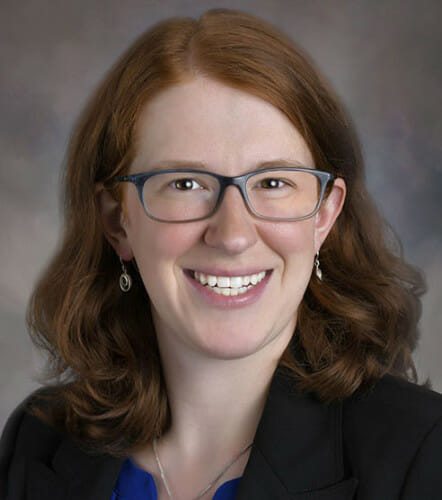
Sarah DiMezza
“Rural medicine was always in my plans,” says Sarah DiMezza, who earned her medical degree in UW–Madison’s Wisconsin Academy of Rural Medicine (WARM). She is working in the emergency department of BayCare Clinic in Two Rivers and also serves as an EMS medical director.
“I always thought it was important to use my knowledge and training to benefit rural populations, so the WARM program was a good fit for me in medical school,” DiMezza says. “Now that I’m working in emergency medicine, I’m happy to be doing so in a small community in Wisconsin. Even more so, I am very happy to be working as EMS medical director to the paramedics with Manitowoc Fire and EMTs with Seymour Rescue.”
Aaron Gehrke, community pharmacist, Phillips
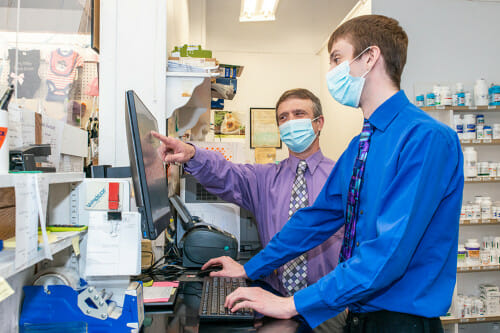
Aaron Gehrke
Aaron Gehrke is a third-generation pharmacist in northern Wisconsin, having recently joined Lakeview Pharmacy in Phillips — once owned by his grandfather and now operated by his father. The independent community pharmacy is an important point of health care access in a rural area where patients must sometimes drive long distances to reach their primary care provider, hospital or clinic.
“When I was younger, it was a big treat to go visit my dad and see him working behind the counter,” Gehrke says. “For me, this is always what I have wanted to do, and it is exciting to know I will carry on the family tradition.”
Lawrence Moore, family medicine physician, Milwaukee
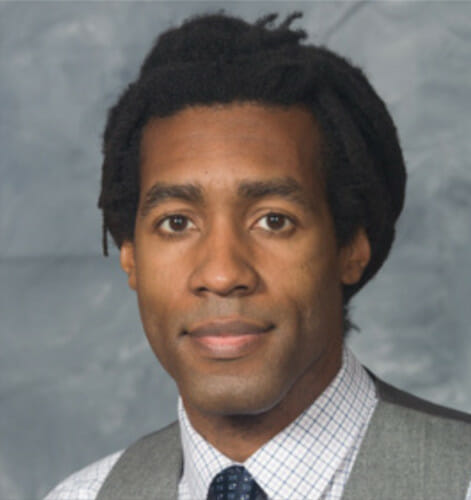
Lawrence Moore
Lawrence Moore, who earned medical and public health degrees at UW–Madison, provides patient care and is on the faculty of the Aurora Family Medicine Program in Milwaukee.
“What I love about family medicine is that there are very few “typical” cases. One day, I may reassure new parents, insert a woman’s intrauterine device, or help a patient navigate their new cancer diagnosis, and the next day could be completely different,” Moore told the School of Medicine and Public Health’s alumni magazine.
“I try to thank every patient for coming to the clinic because each patient has a multitude of options regarding how to spend their time,” he says. “The clinic encounter means they chose their health.”
Katey Olsen, pediatric cancer nurse, Milwaukee
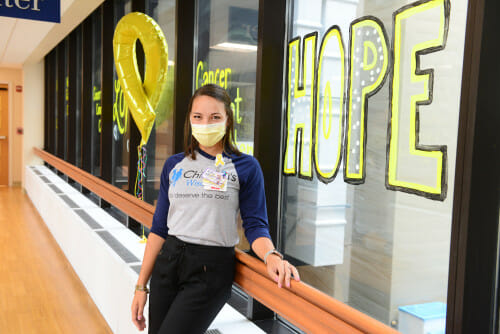
Katey Olsen
Katey Olsen, who received her nursing degree in 2020, works at the MACC Fund Center for Cancer and Blood Disorders at Children’s Wisconsin. A former patient at the center, where she had a cancerous kidney removed and underwent chemotherapy at the age of 5, Olsen loves being able to show kids who are going through similar experiences that if she could beat cancer, they can too.
“I was pretty motivated to stay in Wisconsin,” Olsen says. “One of my goals was to give back to the hospital whose cancer treatment saved my life.”
Ashley Thomas, trauma center nurse, Madison
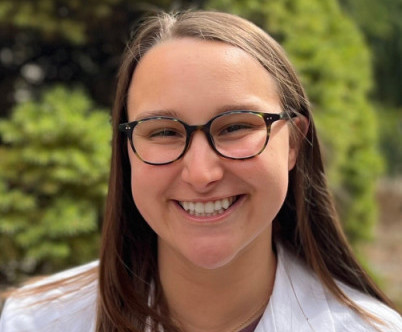
Ashley Thomas
Ashley Thomas graduated in 2022 with a degree in nursing and Spanish, and now works at the UW Health trauma life support center in Madison. “I chose nursing because it is a challenging yet rewarding career that offers interminable learning and the privilege of helping others every day,” she says.
As a student, the Seymour, Wisconsin, native was once a health care volunteer in Peru and is an advocate for improving care across cultures. “I have spoken with Wisconsin state senators in regard to the inaccessibility of care for non-English speaking patients, and I am committed to improving matters at the patient/family level, as well,” Thomas says.
Zoua Yang, hospital pharmacist, Wausau
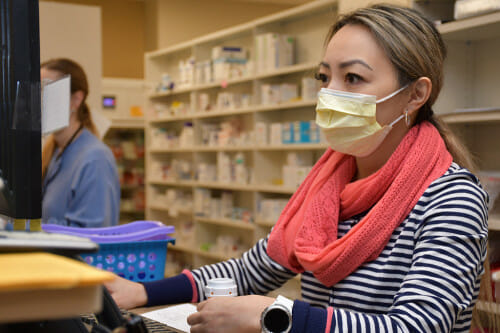
Zoua Yang
Zoua Yang, a pharmacist at Aspirus Wausau Hospital and pharmacy manager at CVS, always knew she wanted to return to her hometown after earning her degree at UW–Madison. “I wanted to give back to the community that gave to me, and be that person, the role model that I had here, for somebody else.”
“It was really important for me to come back and help my Hmong community,” which makes up about 12% of the population in Wausau, Yang says. “I wanted to be a reliable resource for them, to help them with their health care — translating things, understanding their medications, and just being a connection for them in the community.”
Subscribe to Wisconsin Ideas
Want more stories of the Wisconsin Idea in action? Sign-up for our monthly e-newsletter highlighting how Badgers are taking their education and research beyond the boundaries of the classroom to improve lives.

